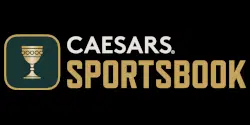Illinois Sports Betting
Illinois online sports betting law allows customers 21 or older to bet on sports with licensed sportsbook apps and betting websites.
Bettors can register, deposit, and bet online from anywhere in state lines. Illinois sports betting apps welcome new users with large welcome bonuses as they compete for customers in one of the nation’s most competitive markets.
In addition, retail sportsbooks in Illinois are available at casinos, race tracks, and professional sports stadiums.
Legal Illinois Betting Sites
 $1500 In Bonus BetsBetMGM Bonus Code: BUSABONUS
Gambling problem? Call 1-800-GAMBLER (available in the US). Call 877-8-HOPENY or text HOPENY (467369) (NY). Call 1-800-327-5050 (MA). 21+ only. Please gamble responsibly. Call 1-800-NEXT-STEP (AZ), 1-800-BETS-OFF (IA), 1-800- 981-0023 (PR). First bet offer for new customers only. Subject to eligibility requirements. Bonus bets are non-withdrawable. In partnership with Kansas Crossing Casino and Hotel. See BetMGM.com for terms. US $1500 promotional offer not available in New York, Nevada, Ontario, or Puerto Rico.
$1500 In Bonus BetsBetMGM Bonus Code: BUSABONUS
Gambling problem? Call 1-800-GAMBLER (available in the US). Call 877-8-HOPENY or text HOPENY (467369) (NY). Call 1-800-327-5050 (MA). 21+ only. Please gamble responsibly. Call 1-800-NEXT-STEP (AZ), 1-800-BETS-OFF (IA), 1-800- 981-0023 (PR). First bet offer for new customers only. Subject to eligibility requirements. Bonus bets are non-withdrawable. In partnership with Kansas Crossing Casino and Hotel. See BetMGM.com for terms. US $1500 promotional offer not available in New York, Nevada, Ontario, or Puerto Rico.
 Bet $5 Get $100 If It WinsFanDuel Promo Code: Not Needed
Gambling Problem? Call 1-800-GAMBLER or visit RG-Help.com. Call 1-888-789-7777 or visit ccpg.org/chat (CT). Hope is here. GamblingHelpLineMA.org or call (800) 327-5050 for 24/7 support (MA). Visit www.mdgamblinghelp.org (MD). Call 1-877-8HOPE-NY or text HOPENY (467369) (NY). 21+ (18+ D.C., KY, WY) and present in select states (for KS, in affiliation with KS Star Casino). First online real money wager only. $5 first deposit required. Bonus issued as nonwithdrawable bonus bets which expire 7 days after receipt. Restrictions apply. See terms at sportsbook.fanduel.com.
Bet $5 Get $100 If It WinsFanDuel Promo Code: Not Needed
Gambling Problem? Call 1-800-GAMBLER or visit RG-Help.com. Call 1-888-789-7777 or visit ccpg.org/chat (CT). Hope is here. GamblingHelpLineMA.org or call (800) 327-5050 for 24/7 support (MA). Visit www.mdgamblinghelp.org (MD). Call 1-877-8HOPE-NY or text HOPENY (467369) (NY). 21+ (18+ D.C., KY, WY) and present in select states (for KS, in affiliation with KS Star Casino). First online real money wager only. $5 first deposit required. Bonus issued as nonwithdrawable bonus bets which expire 7 days after receipt. Restrictions apply. See terms at sportsbook.fanduel.com.
 Bet $10, Get $50
Must be 21+. GAMBLING PROBLEM? CALL 1-800-GAMBLER or 1-800-522-4700, www.mdgamblinghelp.org (MD), (800)-327-5050 or gamblinghelplinema.org (MA), CALL (877) 8-HOPENY or TEXT HOPENY (467369) (NY), or CALL 1-800-NEXT-STEP or TEXT NEXTSTEP to 53342 (AZ), (888) 789-7777 or ccpg.org (CT), or 1-800-9-WITH-IT (IN), morethanagame.nc.gov (NC). New customers in AZ, CO, CT, DC, IA, IL, IN, KS, KY, LA, MD, MI, MO, NC, NJ, OH, PA, TN, VA, VT, WV, or WY (excludes NY). Apply promotion in bet slip and place a $1+ cash wager (min odds -500) daily for 10 consecutive days starting day of account creation. Wager must settle as a loss to earn FanCash equal to losing amount (max $200 FanCash/day). FanCash issued under this promotion expires at 11:59 PM ET 7 days from issuance. Terms, incl. FanCash terms, apply – see Fanatics Sportsbook app.
Bet $10, Get $50
Must be 21+. GAMBLING PROBLEM? CALL 1-800-GAMBLER or 1-800-522-4700, www.mdgamblinghelp.org (MD), (800)-327-5050 or gamblinghelplinema.org (MA), CALL (877) 8-HOPENY or TEXT HOPENY (467369) (NY), or CALL 1-800-NEXT-STEP or TEXT NEXTSTEP to 53342 (AZ), (888) 789-7777 or ccpg.org (CT), or 1-800-9-WITH-IT (IN), morethanagame.nc.gov (NC). New customers in AZ, CO, CT, DC, IA, IL, IN, KS, KY, LA, MD, MI, MO, NC, NJ, OH, PA, TN, VA, VT, WV, or WY (excludes NY). Apply promotion in bet slip and place a $1+ cash wager (min odds -500) daily for 10 consecutive days starting day of account creation. Wager must settle as a loss to earn FanCash equal to losing amount (max $200 FanCash/day). FanCash issued under this promotion expires at 11:59 PM ET 7 days from issuance. Terms, incl. FanCash terms, apply – see Fanatics Sportsbook app.
 Bet $1, Double Your WinningsCaesars Sportsbook Promo Code: BUSA20X
Must be 21+ and physically present in AZ, CO, IL, IN, IA, KS, KY, LA, ME, MD, MA, MI, NJ, NY, NC, MO, OH, PA, TN, VA, WV, WY or Washington, DC. New users only. Must register using eligible promo code. Min. qualifying bet amount: $1. Tokens max. bet amount: $25 per token. Tokens bet max. add’l winnings: $2,500 per token. Token(s) expire 14 days after receipt. Void where prohibited. See Caesars.com/promos for full terms. Know When To Stop Before You Start®. Gambling Problem? CO, IL, KY, MD, MI, NJ, OH, TN, VA, WV, WY, Washington, D.C., KS, LA , ME, NC, PA (Affiliated with Harrah’s Philadelphia): If you or someone you know has a gambling problem, crisis counseling and referral services can be accessed by calling 1-800-GAMBLER (1-800-426-2537) or MD: visit mdgamblinghelp.org or WV: visit 1800gambler.net; AZ: Call 1-800-NEXT-STEP; IN: Call 1-800-9-WITH-IT; IA: Call 1-800-BETSOFF. ©2024, Caesars Entertainment
Bet $1, Double Your WinningsCaesars Sportsbook Promo Code: BUSA20X
Must be 21+ and physically present in AZ, CO, IL, IN, IA, KS, KY, LA, ME, MD, MA, MI, NJ, NY, NC, MO, OH, PA, TN, VA, WV, WY or Washington, DC. New users only. Must register using eligible promo code. Min. qualifying bet amount: $1. Tokens max. bet amount: $25 per token. Tokens bet max. add’l winnings: $2,500 per token. Token(s) expire 14 days after receipt. Void where prohibited. See Caesars.com/promos for full terms. Know When To Stop Before You Start®. Gambling Problem? CO, IL, KY, MD, MI, NJ, OH, TN, VA, WV, WY, Washington, D.C., KS, LA , ME, NC, PA (Affiliated with Harrah’s Philadelphia): If you or someone you know has a gambling problem, crisis counseling and referral services can be accessed by calling 1-800-GAMBLER (1-800-426-2537) or MD: visit mdgamblinghelp.org or WV: visit 1800gambler.net; AZ: Call 1-800-NEXT-STEP; IN: Call 1-800-9-WITH-IT; IA: Call 1-800-BETSOFF. ©2024, Caesars Entertainment
21+ and present in IL. T&Cs Apply. Gambling Problem? Call 1-800-GAMBLER.
Other Illinois online betting options include horse racing betting, lottery ticket purchases, and daily fantasy sports for customers 18 or older.
Pro-gaming lawmakers have also begun pushing for legalizing online casino games and poker, but progress on that front has been slower.
Illinois Sports Betting Apps
Illinois is home to 16 casinos, two race tracks, and nine professional sporting venues, all of which are eligible for sports betting licenses.
Bettors have the following sports betting apps to choose from in Illinois today:
- Bet365 Sportsbook
- BetMGM Sportsbook
- Caesars Sportsbook
- FanDuel Sportsbook
- Fanatics Sportsbook
- DraftKings Sportsbook
- Hard Rock Bet
- BetRivers
- Circa Sports
Illinois Sports Betting Bonuses
The competitive nature of the Illinois online sports betting market benefits bettors who like to take advantage of bonuses and promotions.
With many sportsbooks already available in Illinois, new player welcome offers continue to play a major role in the marketing efforts of most operators.
Most Illinois sports betting bonuses for new customers fall under these categories:
- Bonus bet: This is the most common type of new player offer. Players place their first wager with cash, and if it loses they receive a full refund up to a certain specified amount. The refund is usually issued via bonus bets or site credit, with site credit being preferable.
- First deposit match: Players make an initial deposit and Illinois sportsbooks match part or all of the deposit with bonus funds. The bonus is always subject to a wagering requirement, usually ranging from as little as 1x up to 25x.
- First bet match: This works similarly to first deposit matches, except instead of receiving a bonus, the deposit is matched with a matched bet, capped at a certain amount. In most cases, the matched bet is equal in size to the initial deposit. Matched bets are only subject to a 1x turnover. However, winning wagers made with matched bets only return profits, not the upfront stake.
Illinois Sports Betting Promotion Regulations
Neither the Sports Wagering Act of 2019 nor additional regulations adopted by the Illinois Gaming Board specifically address promotional offers.
However, licensed sportsbook operators are obligated to provide a reasonable level of transparency and fairness to customers.
Additional regulations directly related to promotional offers may be issued at some point as is the case in other states, but currently, Illinois law simply expects licensees to conduct themselves in a “transparent and fair” manner and to promote responsible gambling habits.
Retail Sportsbooks in Illinois
Casinos, race tracks, off-track betting facilities (OTBs), and qualifying sports stadiums may launch on-premises sportsbooks under IL law.
Betting in the Chicago Area
Sports betting has been available near the Chicago area since Indiana’s first sportsbooks launched in September 2019. Two casinos with sportsbooks on the shores of Lake Michigan just over the Indiana border are an easy drive from much of Chicago.
On the Illinois side of the border, BetRivers Sportsbook at Rivers Casino Des Plaines and DraftKings Sportsbook at Wrigley Field are the most centrally-located Chicago sportsbooks.
Moving outward from there are sportsbooks at Grand Victoria Casino, two Hollywood Casinos, and American Place Casino.
In addition, sportsbooks at stadiums are on their way following a vote to end Chicago’s retail sports betting ban.
Illinois Sports Betting Law
Illinois legalized sports betting with the passage of SB 690 in June 2019.
The bill established the Illinois Sports Wagering Act (230 ILCS 45), authorizing the state to issue licenses to casinos, race tracks, off-track betting facilities, and qualifying sports venues to operate retail sportsbooks.
Licensed casinos and race tracks may also offer online sports betting, and licensed stadiums may accept wagers in-person or via mobile devices within a five-block radius.
Licensing fees for casinos and race tracks are priced according to a percentage of the previous years’ revenue up to a maximum of $10 million.
Online operators may either partner with a local land-based casino operator or wait for one of the three online-only licenses that can be issued 18 months after the launch of IL sports betting.
That “penalty box” period has since passed, and BetMGM has already claimed the first online-only license.
Key Illinois Sports Betting Rules
- Are in-person sportsbooks authorized? Yes
- Are online and mobile sports betting authorized? Yes
- Where may sports betting take place? Casinos, race tracks, and sports stadiums may apply for licenses to operate in-person sportsbooks and offer online betting. Each licensed venue is permitted just one mobile skin.
- Minimum age to bet on sports in IL: 21
- Restricted Events*: Minor league events and K-12 events; no online bets on in-state college teams and sportsbooks may not offer in-play betting or player props on games involving in-state teams
- Restricted Wagers: Pro sports teams may ask the Illinois Gaming Board to prohibit certain types of wagers if they are concerned such wagers will impact the integrity of their games; see “prohibited wagers” section below for details
- Data Mandate: Licensed operators must purchase official data from the leagues for settling in-play wagers
- Licensing fees: Between $3 – $20 million. Pro sports leagues will pay $10 million for a license, and online only operators must pay $20 million.
- Tax rate**: 20-40% on adjusted gross sports wagering receipts plus 25 to 50 cent tax per wager
- Additional local tax: An additional 2% tax to be collected from operators located in counties with a population above 3 million. Money collected from this tax is earmarked to support that county’s criminal justice system.
- Self-exclusion: The Illinois Gaming Board and Department of the Lottery maintain a voluntary self-exclusion program for people who wish to restrict themselves from wagering
*In December 2021, Governor Pritzker signed a bill to legalize betting on Illinois colleges with two caveats: bettors may only place wagers on Illinois college sports in-person at retail sportsbooks, and sportsbooks may only offer pregame wagers – no individual player props or in-play betting.
**Illinois increased its sports betting tax rates in 2024 to a graduated rate based on operators’ adjusted gross revenues:
- $0 to $30 million: 20%
- $30 million to $50 million: 25%
- $50 million to $100 million: 30%
- $100 million to $200 million: 35%
- $200 million and above: 40%
Illinois increased taxes on operators again in 2025, this time via a per-wager tax:
- 25 cents per wager on the first 20 million wagers an operator takes annually
- 50 cents per wager on each additional wager after its first 20 million
Illinois Sports Betting Surcharge and Minimum Bets
All Illinois sports betting apps have implemented minimum wager amounts or added per-wager surcharges to offset the costs imposed by tax increases approved by lawmakers in 2024 and 2025.
Minimum bet for customers located in Illinois:
- BetMGM: $2.50
- Hard Rock Bet: $2.00
- Circa Sports: $10.00
- BetRivers: $1.00
Per-wager surcharge for customers located in Illinois:
- FanDuel Sportsbook: $0.50
- Caesars Sportsbook: $0.25
- Fanatics Sportsbook: $0.25
- DraftKings Sportsbook: $0.50
- Bet365: $0.25 for bets under $10.00
Illinois Daily Fantasy Sports
 Play $5, Get $75Underdog Sports Promo Code: BETUSA
Must be 18+ (19+ in AL, NE; 19+ in CO for some games; 21+ in AZ, MA, and VA) and present in a state where Underdog Fantasy operates. Terms apply. Concerned with your play? Call 1-800-MY-RESET or 1-800-GAMBLER or visit www.ncpgambling.org. NY: Call the 24/7 HOPEline at 1-877-8-HOPENY or Text HOPENY (467369).
Play $5, Get $75Underdog Sports Promo Code: BETUSA
Must be 18+ (19+ in AL, NE; 19+ in CO for some games; 21+ in AZ, MA, and VA) and present in a state where Underdog Fantasy operates. Terms apply. Concerned with your play? Call 1-800-MY-RESET or 1-800-GAMBLER or visit www.ncpgambling.org. NY: Call the 24/7 HOPEline at 1-877-8-HOPENY or Text HOPENY (467369).
Illinois law does not address daily fantasy sports, but many DFS operators are active in the market and accept customers 18 or older.
A 2020 Illinois Supreme Court decision ruled daily fantasy games are a contest of skill and not subject to state laws on gambling, which is heavily regulated.
As a result, daily fantasy sports apps are legal in Illinois despite the lack of legislation. Illinois sports fans can play fantasy sports online with many operators, including the most prominent DFS brands.
Readers can learn more about Illinois daily fantasy sports and see BettingUSA’s top-rated picks below:
Illinois Horse Racing Betting
Online horse racing betting is legal and licensed in Illinois.
Lawmakers formally authorized horse racing betting by passing the Illinois Horse Racing Act of 1975. Later, Illinois legalized advance deposit wagering and established a licensing process for ADWs.
Today, Illinois is home to a robust horse racing industry with two permanent race tracks and numerous OTBs.
Most popular online horse racing betting operators (ADWs) are licensed in Illinois, providing fans with many options to bet on horse races throughout the state.
Illinois Online Gambling
Illinois lawmakers have introduced numerous bills to legalize online casinos, but opposition from existing gambling interests has stymied their efforts so far. Specifically, video gaming terminal operators are concerned over the potential for online gambling to cannibalize VGT revenue, while labor organizations fear reduced employment at land-based casinos.
As a result, online gambling remains prohibited in Illinois aside from online sports betting, parimutuel horse racing betting sites, and sweepstakes casinos.
However, recent legislative efforts show that proponents are determined to pass a bill and bring legal online casinos to Illinois. Read more about the Illinois online gambling market and its future prospects here:
Responsible Gambling in Illinois
Numerous resources are available in Illinois for anyone concerned they or a loved one may have a gambling problem:
- Illinois Problem Gambling Helpline: Call 1-800-GAMBLER; text GAMB to 833234
- Illinois Council on Problem Gambling (ICPG): Visit the ICPG website for information and local problem gambling resources
- Free Problem Gambling Screener
Illinois Sports Betting and Gambling Self-Exclusion
Individuals may self-exclude from all licensed Illinois sports betting sites, retail sportsbooks, and casinos through the Statewide Voluntary Self-Exclusion Program (SEP).
Gamblers can visit the IGB office at any Illinois casino or any of the enrollment sites the SEP maintains throughout the state. In addition, the IGB has several enrollment sites across the border in Iowa.
The SEP only offers lifetime self-exclusion periods, but gamblers may request removal from the self-exclusion list after five years. However, removal is very difficult.
First, the removal request requires an affidavit from a mental health professional certified in gambling addiction. Of course, anyone who has permanently self-excluded from gambling is unlikely to convince a licensed problem gambling expert to sign such an affidavit.
Additionally, individuals seeking removal from the list must provide extensive documentation detailing their past gambling problems, treatment, treatment providers, and much more.
Important Illinois self-exclusion points:
- Friends, family, and spouses may not submit self-exclusion requests on behalf of others; only the person seeking self-exclusion may enroll
- Some Illinois casinos automatically extend self-exclusion requests to all of their properties nationwide
- Self-excluded individuals who enter Illinois sportsbooks and casinos may face trespassing charges and the confiscation of any tokens, chips, and betting slips in their possession
- It is the responsibility of self-excluded individuals to stay out of all Illinois sportsbooks and casinos, inform the IGB of any change of address, and inform the IGB if they receive any letters or brochures from an Illinois sportsbook or casino
- Self-excluded individuals may still visit stadiums with sportsbooks, but they may not enter the venues’ sports wagering areas




